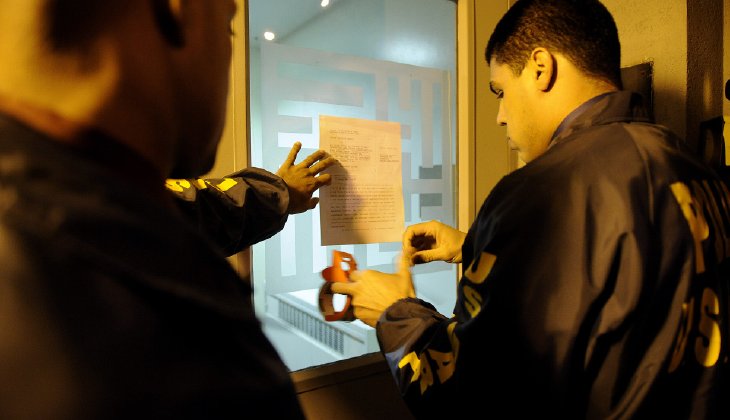
One week ago today, the U.S. Department of Justice bestowed a gift upon Americans everywhere heading into the new year — albeit a reluctant one. The department announced that due to budget cuts, it would stop sharing with state and local governments the assets seized through civil forfeiture in joint federal investigations.
For practical purposes, this means that a glaring loophole in state civil forfeiture laws has been closed, at least temporarily.
State and municipal law enforcement agencies make big money seizing property from owners who have not been convicted or often even charged with a crime, on the pretext that it was somehow involved in criminal activity. The burden falls upon property owners to prove it wasn’t, and they might have to go to great effort and expense to recover what’s theirs. It sounds terribly un-American, but it is a routine practice in most states. Some states, such as New Mexico, have already begun to reform it, requiring a criminal conviction before property can be lawfully seized.
When state laws are passed restricting this dubious police practice, the cops sometimes circumvent them by involving the feds. That’s because assets seized through joint federal task forces fall under federal law instead. The seized assets are then shared back with them through what is known as the “equitable sharing” program. In many places, the money goes straight into police budgets, which increases the incentives for aggressive seizure activity.
The Justice Department’s reluctant decision to suspend the sharing program closes this loophole for all 50 states, so that police agencies can no longer use it to get around state restrictions on the practice.
In reality, the one bestowing this gift was Congress, and the vehicle for it was a large and well-deserved budget cut. Its November and December spending bills contained a little-noticed victory for freedom when they rescinded a total of $1.2 billion from the Justice Department’s Asset Forfeiture Program.
In a letter to law enforcement agencies, the Justice Department noted that it “does not take this step lightly. We explored every conceivable option that would have enabled us to preserve some form of meaningful equitable sharing while continuing to operate the program and meet our other fiscal obligations. Unfortunately, the combined effect of the two reductions totaling $1.2 billion made that impossible.”
Although the Justice Department’s letter makes clear that this suspension is only temporary, Congress and the various state legislatures can and should act in the new year to limit the program on a more permanent basis. Legislators at the federal or state level should set a minimum value on assets that can be jointly seized with the feds, so that the program cannot be abused by state and local law enforcement in order to seize smaller amounts in circumvention of state law. The Institute for Justice, a leading organization in the push for civil asset forfeiture reform, recommends that only assets worth more than $50,000 should be eligible for federal forfeiture.
In the meantime, the obligation falls on states and communities to fund their police forces adequately, so that they don’t have to practice this form of legal banditry on the side in order to pay for their operations. This can only help improve public confidence in the police.